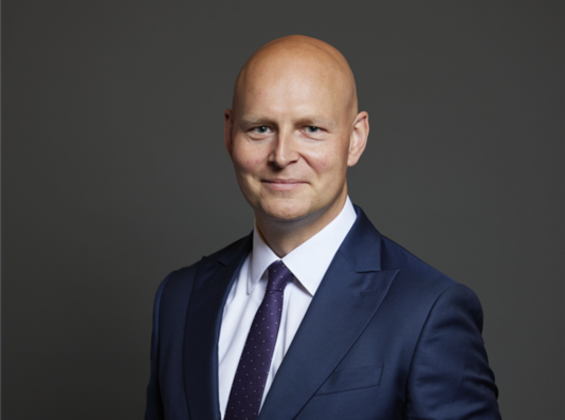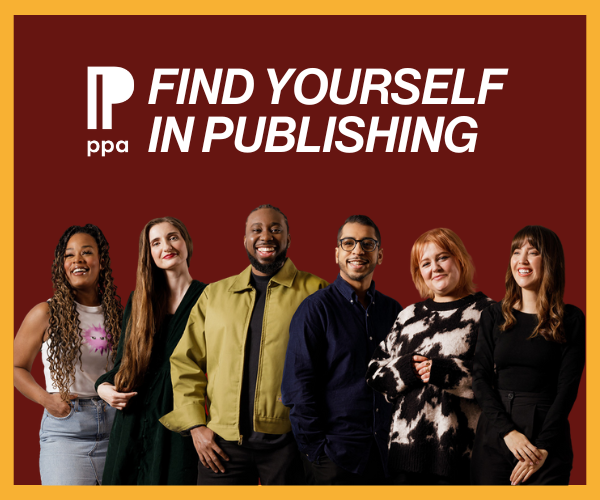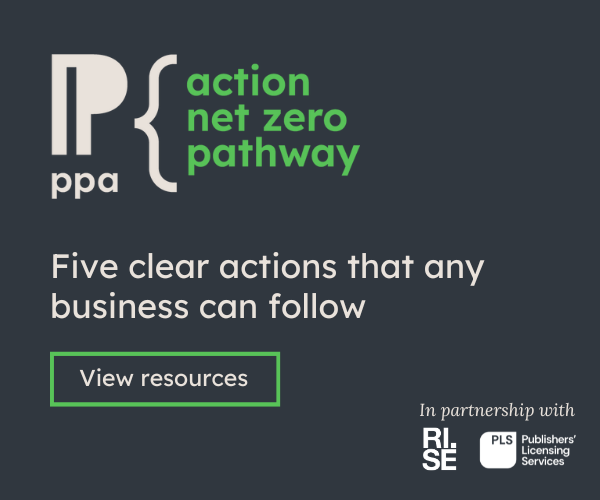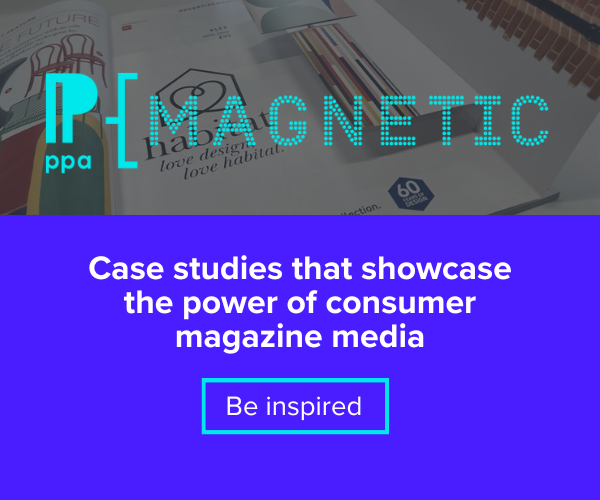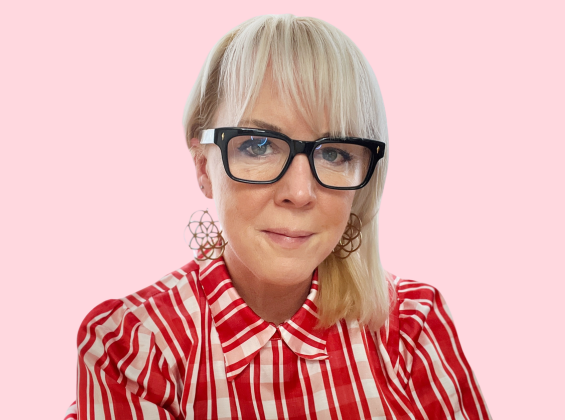
What made you want to work in the magazine industry?
I always loved writing and I wanted to write. From a young age I was always really keen to write and magazines seemed to be the best way into it.
I did a doctorate in Archaeology and while I was doing that, I was also working in the university's academic publishing house, to make ends meet. Friendly colleagues there had some contacts in the magazine industry and they put me in touch with some people and I went from there. I wanted to write and they gave me the opportunity.
Can you chart your journey from when you started out to your current position?
I did my PhD at Exeter University and worked at the University Press there and did some journalistic work. I also developed some skills in website creation. This was just before the dotcom boom, back when it was quite easy to set up a website on your own without having to use editing software and things like that. I learnt some basic coding and that gave me a chance to get a job working as a production assistant on an internet business magazine.
I did that for a couple of years, learnt the ropes of magazine production, then I saw that there was a new magazine called Living History, which was being launched by Origin Publishing. I applied for the staff writer job on that, and was lucky enough to get the gig. Origin Publishing went through various iterations, was bought by BBC Magazines after a time, then Immediate Media came out of BBC Magazines a few years later. So, I've worked for the same business, but in slightly different guises for quite a few years now and worked my way from Staff Writer, Deputy Editor, through Magazine Editor, for a good few years. Then Publisher, and now Content Director across a few magazines.
Do you have a go-to work outfit?
Not really. T-shirt, jumper, jeans. But no, I don't have go-to work outfit. Sorry.
What do you turn to when you’re on deadline – tea/coffee/snacks?
Coffee all the way, black coffee, straight black coffee, no messing around. I try not to snack, it’s far too easy to do that in the office. That isn’t too good for you so I’m all about the coffee.
What's the most unusual situation you've found yourself in because of your job.
There have been loads of things. How about the time I spent the day in a medieval drain with a historian trying to record a podcast? That was good fun. There are some fantastically preserved medieval drains under Exeter. We went there and the historian had a key to get into a bit that nobody ever goes in, and we hung around down there with a torch and a podcast recorder, chatting about the Middle Ages, for quite a while. That was entertaining.
How about the now infamous Richard III King in the car park story?
Richard III has been a great thing for the magazine. Richard III has kept our sales figures very honest for a few years because there's been so much interest in that.
That was a truly amazing story, a once-in-a-century story, to be honest, in terms of the chances of an actual king being unearthed under a car park. it was a phenomenal piece of detective work and generated so much interest, so it was lucky for me and my team that we were around when the story broke.
We were all over it from the start. We had a scoop early on when they were doing archaeological survey work at Bosworth, we were first in on findings that they made from the battlefield before the King was found. We had a big special section, before anyone else got to it, saying how they thought they might have found a badge of Richard III in the middle of Bosworth Field.
So, we were in there from the start and kept tracking it all the way through. We had a correspondent up there for the funeral ceremony. It's been a great story for us.
What would people be surprised to know about your job?
Probably the fact that you might think that history is a subject that only appeals to a certain demographic and that we'd be very much restrained to print products, but actually BBC History Magazine has a really, really strong and vibrant digital presence.
We've had a podcast for over a decade, and the podcast has, for a long time been a really powerful branding tool for us. We put out two podcasts a week now, which is a pretty big thing. We had a kindle e-reader edition from very early days and since then we've had a really strong digital presence and digital iteration for the magazine.
We have a very popular website at historyextra.com as well, which gets great traffic. You may think that history is really confined to those who enjoy print reading, actually we've proven that there is a large digital appetite for it. That's the main thing. We spend a lot of time focusing on our web and digital identity.
We've got a paywall on the website now, so we've got a section which is really looking to drive subscribers to get extra value from our offerings. We've put a load of past features from our print magazine behind the paywall and subscribers get free access to that.
Obviously, we hope that that will not only increase retention rates, but also boost acquisition rates because we have created an amazing resource for readers, new and old, on the website, which we can curate and cut in any way that works well for that audience. That's another big thing and another step change for the brand.
Walk me through your typical day.
We're based in central Bristol and I live a little way away, so I drive in, which is a bit of a mission. I'm up at 6.00am, drive in and then park on the edge of town and I'll walk in to give my legs a stretch. That means I'm in before most of my colleagues, which gives me a chance to get my head around the day.
My role is essentially keeping an eye on content and editorial development across our history and science portfolio, so I will have one-to-one meetings with my print and digital editors; that will take up a fair bit of the day. We'll have a lot of conversations about covers, obviously that's still a big part of the job. I will probably have a session where we're reviewing an issue of a magazine; we still do traditional magazine debriefs. Most days, I’ll sit down with some of the web editorial team and talk about content for our online operations.
I will no doubt have some commercial meetings, or similar, which will take up a bit of time. And normally I have a lot of informal chats with my publishing colleagues.
I might be working on a bit of content myself. I still do the occasional podcast, I still write now and again. Not so much, but as much as I can fit in, so maybe there’ll be a bit of that.
It normally is a pretty full day and, given that I get in early, I try to slink off a little bit before everyone else. I try and get out of the office by half four and jump in the car and miss the traffic and get home to catch up with the kids before they go to bed.
Can you fill me in on the BBC History Events that have been taking place this year?
About five years ago we tested out an event, as part of the history portfolio. We now run two major set piece history weekends in the autumn, plus other smaller-scale events through the year.
With the autumn weekends, there’s one in Winchester and the other in York. We invite 30 or 40 notable historians to come along to each and do talks, and the public come along and listen to them. Then we have a book-selling partner who does book signings afterwards.
So, they're history literary festivals. We've got a good following for those now, we get some really good names coming along like Suzannah Lipscomb, Lucy Worsley, Dan Jones and Michael Wood; so these are pretty famous historians who come along and give talks.
There's no denying that setting up events is a tricky business and requires a lot of dedication and no small amount of risk. The upside of it is, not only do you get to meet your contributors, the people who are writing for your magazines and who you perhaps only interact with virtually normally, but you also get to meet your readers and find out what's floating their boats as well, so it's a really valuable thing as well as being a commercially useful operation as well.
How has being a member of the PPA helped you/added value to your brand?
I think it's just useful to have a voice and advocate for the whole industry. It’s great to have somebody out there making sure that the public is aware of what we're doing and pushing magazines forward generally.
I know in the past there's been training opportunities and things like that which have helped colleagues in the business to develop, and of course, awards and recognition is always a big thing and it's great to be able to celebrate that.
If you didn’t have to sleep, how would you use the remaining hours in the day?
If I didn't have to sleep … I would probably go to sleep, because I don't get enough sleep.
I've got three fairly young kids, so I always could do with a rest.
In the unlikely event that I wasn’t tired, I would write some more. I really enjoy writing and that's one of my great passions. I've spent most of my spare time this year writing a book on the Bayeux tapestry for a magazine spin-off, so I'd probably spend a bit more time doing that sort of thing.
Failing that, I'd go for a long run. I enjoy running at night, so I’d stick a headtorch on and go for a run through the woods; that works.
What is the last photo you took on your phone (at time of interview)? Why?

It's a picture of one of my kids doing a move on a gymnastics frame on a beach. They spend a lot of time hanging upside down, I’m not sure why.
What’s your guilty pleasure?
This would be boring, but, if I had a chance to sit down and read a book, uninterrupted, that would be a great pleasure. It doesn't often happen, but, to just sit down and read a book for pleasure with no ulterior motive, no work related aspiration, without anyone bothering me, that’s great.
Whose phone number do you wish you had?
Queen Victoria is obviously dead, but it would be very handy to have her phone number now. There is a lot of interest in Victorian history these days, so it would be pretty useful editorially to be able to give her a ring to get a few choice quotes for some stories.
What's the best piece of advice you've ever been given?
That would be, "Never send a letter in anger”. That was told to me quite a while ago, when people used to send letters still, but it translates to emails just as well. If you've got something to get off your chest, write the email, stick it in drafts, and sleep on it, then have a look at it the next day and think if it’s still a wise idea to hit send.
What/where is your happy place?
Anywhere on the coast. So, down in Devon or Cornwall, maybe even in a kayak, just enjoying the sea and the coastline. There is some amazing scenery down there, and it’s not too hard to get away from the crowds, particularly if you head down out of summer.
What would people be surprised to know about you?
People would be surprised to know that I am an enthusiast for prehistoric beavers.
I was involved in a research project when I was doing my doctorate. Beavers chew wood, obviously, and the way they chew it looks quite similar to the way prehistoric people used to cut timber with flint axes so where you see a bit of beaver-chewed wood on an archaeological dig it could be mistaken for a bit of axe-worked wood and that skews the archaeological record.
So, I studied beavers, we went and looked for evidence of them and we surveyed some beaver lodges and dams, to try to understand how beavers might show up in prehistoric archaeological sites.
Now, curiously enough, there are some actual living beavers down the road from me in a lake that's got a big beaver-proof fence around it, so I go and sit and watch them of an evening some time – I guess that’s a better, and weirder, guilty pleasure than reading a book.
What would be in your Room 101?
Traffic jams would go into my Room 101. If we could find a way to get rid of them, then that would be a marvellous thing. I’m pinning my hopes on driverless cars to sort that one out (I’m also responsible for content on BBC Focus magazine, our science title, so obviously technology like that is very much big news for that title).
Introvert or Extrovert?
Introvert.
Optimist or Pessimist?
Both, depends how much coffee I've had.
Film or television? What are you binge-watching at the moment?
Film, probably. I don't really watch much, though I did binge on the Last Kingdom series the other day, and loved it.
Sweet or savoury?
Savoury. Cheese basically.
Morning person or night owl?
Morning.
Tea or coffee?
Coffee, all black.
Emojis, cool or cringy? Which emoji do you use the most?
I don’t use emoji's, I'm afraid. Don't think I've ever used an emoji. I’m not an emoji kinda guy.
David Musgrove is Content Director of the History & Science portfolio at Immediate Media. BBC History Magazine (historyextra.com), BBC World Histories Magazine, History Revealed (historyrevealed.com), BBC Focus Magazine (sciencefocus.com) are the key brands he works on.
